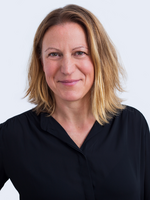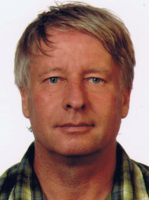
The German government has set a target of 30 percent organic farming by 2030, but the outbreak of the war in Ukraine has once again prompted critics to claim that organic farming cannot guarantee food security. Organic farming is the only way to ensure food security in the future, the proponents counter. We ask: Is organic farming suitable for the masses?
„Is it enough to look at the average yield now? Or do we also have to consider the major social challenges such as climate change and climate adaptation? Focusing only on the here and now is simply not enough.“
Prof. Anna Maria Häring, Eberswalde University for Sustainable Development
When it comes to food security, arguments are often quickly divided into pro and contra organic farming. Yet the challenges for agriculture as a whole are fundamentally the same: to produce healthy, safe and affordable food for a growing world population; to minimise pollution, greenhouse gas emissions and species extinction; and to improve animal welfare.
According to scientific findings, organic farming can contribute to overcoming these challenges. But instead of using the know-how of organic farms, they are accused of producing food only for a small, elite group of society. Compared to conventional agriculture, much less yield is produced with considerably more effort on much more land. But can conventional and organic farming really be compared in terms of yield per unit area? Does the performance of organic farming need to be improved or must ecosystem-relevant services be part of the normal everyday life of conventional farmers as well?
Our guests Anna Maria Häring, professor at the Eberswalde University for Sustainable Development, and Gerold Rahmann, head of the Thünen Institute of Organic Farming in Trenthorst, outline where the strengths and weaknesses of organic and conventional agriculture lie. They explain why the organic value chain is currently the only system in which all societal challenges are addressed and why knowledge about healthy nutrition also helps to achieve the goal of 30 percent organic farming.
Sources and further readings
- Behrendt, G., Peter, S., Sterly, S. et al. Community financing for sustainable food and farming: a proximity perspective. Agric Hum Values 39, 1063–1075 (2022)
- Braun CL, Bitsch V, Häring AM (2021): Developing agri-food value chains: learning networks between exploration an exploitation. In: The journal of Agricultural Education and Extension
- Hamm U, Häring AM, Hülsbergen KJ, Isermeyer F, Lange S, Niggli U, Rahmann G, Horn S (2017): Research strategy of the German Agricultural Research Alliance (DAFA) for the development of the organic farming and food sector in Germany. Org. Agr. (2017) 7: 225-242
- Fieldsend AF, Varga E, Biro S, Münchhausen S, Häring AM (2022): Multi-actor co-innovation partnerships in agriculture, forestry and related sectors in Europe: Contrasting approaches to implementation. In: Agricultural Systems 202
- Rahmann G et al. (2016): Organic Agriculture 3.0 is innovation with research. In: Organic agriculture 7, S. 169–197
- Sanders J, Heß J (2019): Leistungen des ökologischen Landbaus für Umwelt und Gesellschaft. Thünen-Report 65 (in German)

Anna Maria Häring is Professor of Policy and Markets in the Agricultural and Food Economy at the Eberswalde University for Sustainable Development. Among other things, the agricultural economist deals with innovation processes and sustainability-oriented business models in the agricultural and food industry.

Professor Gerold Rahmann has headed the Thünen Institute of Organic Farming in Trenthorst since its foundation in 2000. He advises policy-makers on all issues relating to organic farming. He is particularly interested in combating hunger around the world. To this end, he has, among other things, set up an "Organic Farming" working group for Africa and India.





Comments (0)
No comments found!